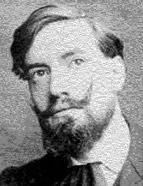

Having learned to historicize by reading good historians, Jaime Cortesão, however, was too much of himself to be marked by more than slight influences - which there were, for sure. His intellectual structure integrated and assimilated, expanded and enriched itself without any dominant external presence. While Durkheim's French sociology was relevant and his social morphology suited to Cortesão's thinking as a geographer - as evidenced in the writing of Os factores demográficos na formação de Portugal [The democratic factors in the formation of Portugal] - another clearly evident influence was Henri Pirenne’s As cidades na Idade Média [Cities in the Middle Ages] (1927).
The urban bourgeoisies, in the spaces they progressively organised, brought vitality to the economy and led the small fry, thus constructing a communal civilisation. Cortesão's social analysis was linked above all to urban spaces and their dynamics. While these convergences were brought to light in 1930, a reinterpreted Pirenne was always present - because it conformed to the profound (and not infrequently meta-historical) vision of the social path from which the discoveries resulted, through the cosmopolitanism of the port bourgeoisies, when the People and the Elites joined efforts so that the epic could unfold overseas.
Sociology, economic and social history, especially geography, and a keen sense of spiritual and religious yearnings served the architecture of the masterpieces written in exile. Evidence was presented for his claims, albeit in an interpretation of documents that at times could only be sustained by accepting the assumptions of the secrecy theory. Cortesão traced the emergence of nationality through the occupation of the territory and the articulation of the ways of life of the population of the various regions. The community was formed from this junction of diverse origins, and also some foreign colonisation. The search for various reasons, to some degree timeless and imaginary - the adequacy of which was always impossible to prove - was no longer needed to advance in the knowledge of the economy and administration of the country. The "profound economic renewal of the Country" was a central point to explain national affirmation in the 14th century. This was the response to the external demand for wines and salt, olive oil and fruit. There was also the export of honey, wax, leather, fur and wool. And the inland economy and that of the coast were also joined. "Inland, agriculture and pastoralism; on the coast, the exploitation of salt and fishing that extended from our coast to foreign countries." Thus, " the new genre of national life was created: maritime trade at a distance, based on agriculture." (Os factores..., pp. 89-91)
